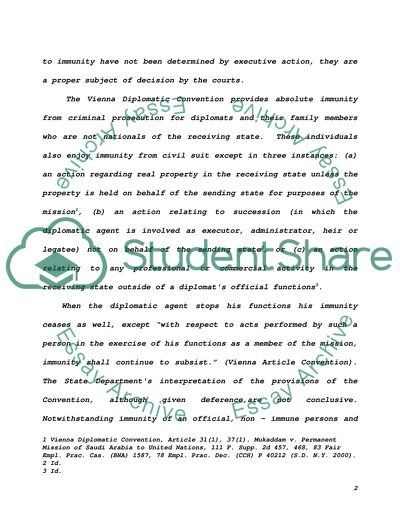Cite this document
(“Diplomatic Immunity Essay Example | Topics and Well Written Essays - 1500 words”, n.d.)
Retrieved from https://studentshare.org/miscellaneous/1544271-diplomatic-immunity
Retrieved from https://studentshare.org/miscellaneous/1544271-diplomatic-immunity
(Diplomatic Immunity Essay Example | Topics and Well Written Essays - 1500 Words)
https://studentshare.org/miscellaneous/1544271-diplomatic-immunity.
https://studentshare.org/miscellaneous/1544271-diplomatic-immunity.
“Diplomatic Immunity Essay Example | Topics and Well Written Essays - 1500 Words”, n.d. https://studentshare.org/miscellaneous/1544271-diplomatic-immunity.


